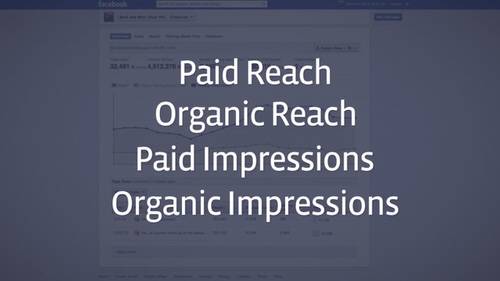
In yet another Bad News Friday post, Facebook has informed us that it hasn’t exactly been counting the audience for our posts quite correctly. In fact, the social network has been significantly understating the “reach” of Facebook posts – especially paid posts – for at least the past several months.
In a blog post yesterday on Facebook Studio, the social network’s marketing hub, the company admitted that coding errors have been misrepresented the audience reached by Facebook posts since sometime last year (though it hasn’t yet been much more specific than that). Facebook stresses that these bugs have only impacted reporting and not delivery, meaning fans were still receiving the posts, even if Facebook wasn’t counting them properly. The company said the stats should update once Facebook cleans up its code.
This admission could be a big deal for Facebook, which has taken some serious heat from Dallas Mavericks owner Mark Cuban and other big brands for allegedly throttling their access to their Facebook fans. Last November, Cuban complained, both on Twitter and in heated articles on sites like The Huffington Post, that Facebook was restricting brands’ ability to engage their fans in order to juice sales of paid “promoted posts.”
Less Bang For The Buck
The bugs Facebook is describing, however, could also conceivably have led brand and business owners like Cuban to believe they were getting less bang for their Facebook marketing buck. In its post yesterday, Facebook claimed that the bugs held down the reported audience for paid newsfeed posts, meaning that such promotional posts actually reached a larger number of users than the social network’s statistics previously suggested.
“As soon as we found the bugs our engineering team began work to resolve them as quickly as possible. We’re rolling out fixes beginning this morning and over the weekend,” Facebook’s post states. That’s certainly reassuring for anyone who relies on Facebook for social marketing, but the underreporting to date is still a pretty big deal. It’s an even bigger deal where paid reach is concerned, since that involves placing ads placed in users’ news feeds – ads that then reported back inaccurate numbers.
Here’s what will change as a result of the ongoing bug fixes, according to Facebook:
- Total reach to stay the same or increase for most Pages
- An increase in paid reach if you ran News Feed ads
- An increase or decrease in organic reach, depending on many factors such as the composition of your fan base, when and how often you post and your spending patterns
- A change in metrics computed from reach and impressions, such as engagement rate and virality
- We know that accurate data is fundamental to building and improving your Facebook presence. We are taking this very seriously. We have already put a number of additional quality and verification measures in place to prevent future bugs and resolve them quickly if they arise
Where It All Began
Facebook says the problems originated during an update to its iOS and Android apps, TechCrunch reported. While trying to speed up mobile performance of its site, Facebook ended up stripping away a little too much of the data reported back to its servers. This resulted in a couple of bugs that failed to count page posts as users upgraded to new versions of the apps, and then a lesser bug that counted the viewing of a desktop news feed ad twice, as both an organic and then a paid impression.
It wasn’t until a number of complaints from clients that Facebook decided to perform an internal audit, which uncovered the bugs and forced the company to begin an intense three-week fix.
While you can certainly argue that the bugs didn’t cause that much damage – after all, many pages will soon show improved reach as a result of the fixes – the problem certainly does some damage to Facebook’s reputation as a secure and accurate social hub for business.
But if you’re a brand manager who’s been feeling a little down in the dumps over your failure to engage readers with paid posts, you can take heart in Facebook’s two-minute video reiterating its solutions. With alarmingly low depth-of-field, a woman with a very calming voice explains everything you need to know about this not-a-real-problem to soothing piano music. Surely your average social media manager shouldn’t require much more than that to fend off frustration.
















